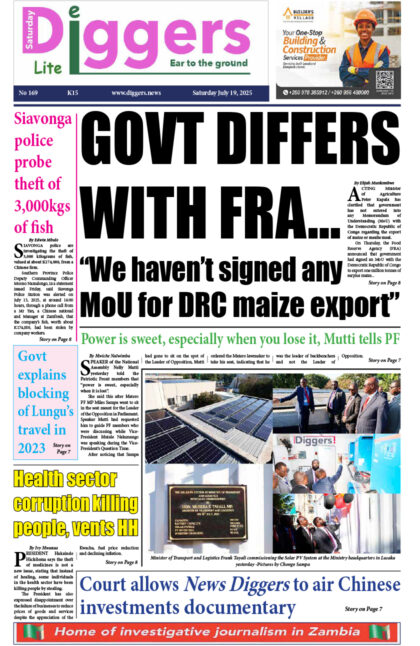The impending Sales Tax is likely to trigger massive job losses in the country in its current form, the Zambia Institute of Chartered Accountants (ZICA) has warned.
And ZICA says the proposed Goods and Services Tax (GST) will breach Zambia’s World Trade Organisation (WTO) obligations as the provisions of the Bill run contrary to General Agreement on Tariffs and Trade (GATT).
In a detailed 22-page submission rendered to the parliamentary Budget Committee on the ramifications of the proposed GST, ZICA warned that government’s attempt to implement the tax legislation in its current form would trigger huge job losses along the supply chain owing to the threatening cascading effect of applying tax on tax.
ZICA demonstrated how detrimental the GST would be in both the locally-manufactured goods and the imported goods value chain scenarios, respectively.
“The implications of both scenarios is the likely change in operating model that companies may adopt to mitigate against the cascading impact of Sales Tax. In the first scenario, it is likely that the retailers may be forced to buy directly from the manufacturers. This will particularly be the case with large multinational retailers that will have the financial and logistical capacity to import directly or buy from manufacturers. Such a change in operating model will be very detrimental to smaller retailers that will not be able to compete with these larger players. In many instances, distributors and retailers will be priced out of business,” ZICA cautioned.
“Similarly, in scenario two, the mining company will be forced to import directly from the manufacturer to avoid the additional nine per cent local Sales Tax. Such a change in the supply chain will impact the distributors negatively and would have a very adverse impact on the economy, especially on the Copperbelt. We note that suppliers to the mines account for a key component of the economy. Should they be removed from the supply chain, it is likely that there will be job losses and, in the end, the fiscus will collect much reduced amounts.”
The professional accountants’ regulatory body also illustrated how larger corporations would alter their supply chains and eliminate distributors, causing even more job losses.
“Large businesses will alter their supply chains and eliminate distributors. It is likely that rather than buying locally, they will import directly. In many instances, import replacement will not be possible as many of the distributors deal in specialised parts and products that cannot be manufactured locally. The result of such changes in supply chains may be loss of jobs in distributor-dependent sectors of the economy, such as the Copperbelt (mine suppliers),” it warned.
“Ultimately, the loss of distributors will lead to reduced revenue collection. The projected incremental revenue should take this into account. There could possibly be a much higher loss to the fiscus as many distributors employ large numbers of people (PAYE) and in many instances pay income taxes and VAT.”
And ZICA observed that Sales Tax, due to be implemented in a month’s time, will likely breach Zambia’s WTO obligations as the provisions of the Bill run contrary to GATT.
“We note that the Bill provides for two rates of tax, 16 per cent for imported goods and 9 per cent for locally manufactured goods. On the face of it, it appears to be a breach of Article III (National Treatment on Internal Taxation and Regulation) of the GATT,” revealed ZICA.
“It is our considered view that the proposed measures have the unintended consequence of being not only drastic, but highly punitive and bound to hurt the economy. While the motive to increase tax collection from the mining sector is welcome, we strongly recommend a gradual and phased approach to changes to the tax regime to enable the affected parties to prepare and plan. We think that what appear to be a harsh tax regime, based upon our analysis, will negatively affect the much-needed long-term investment, job creation and investor confidence in the country.”



















